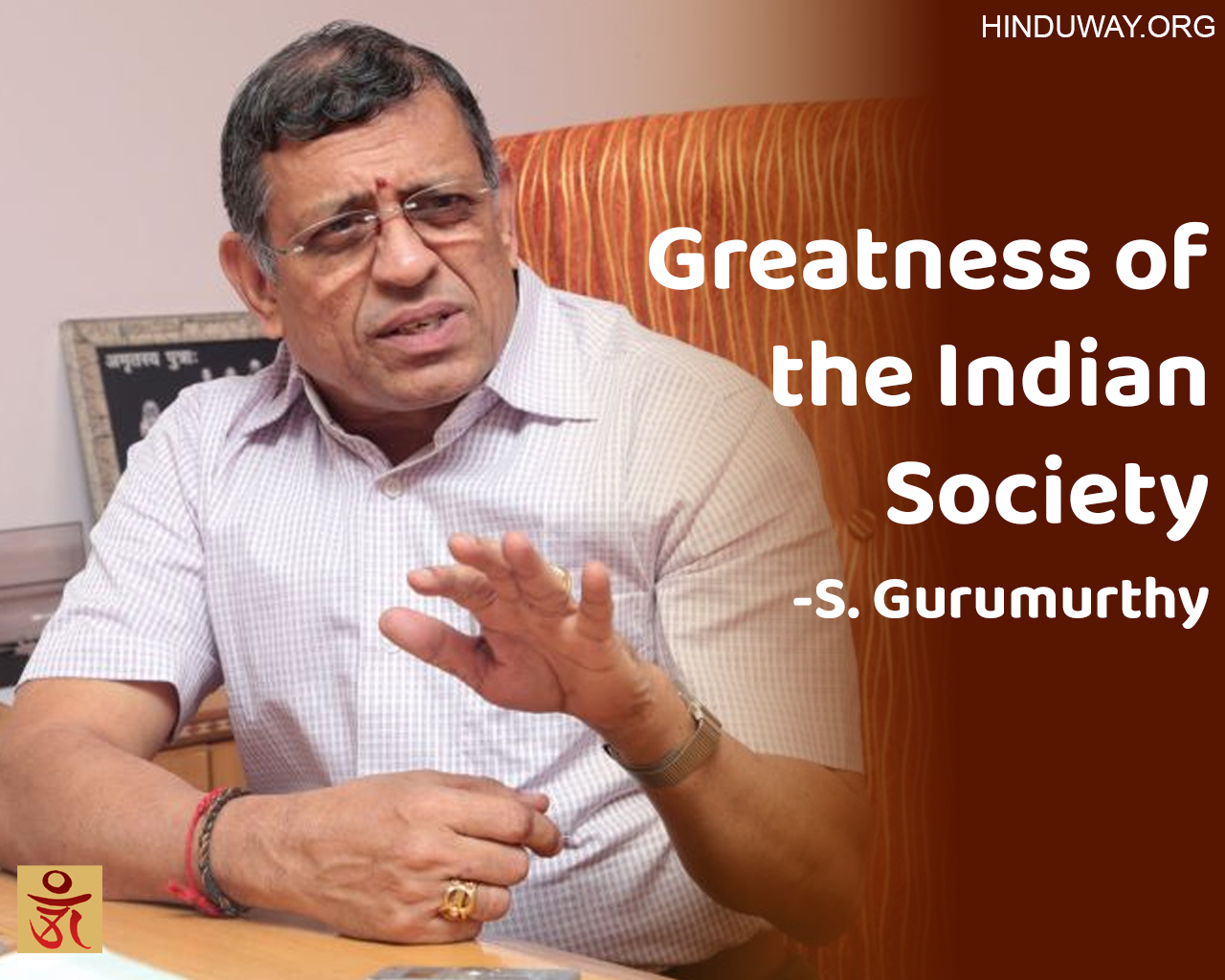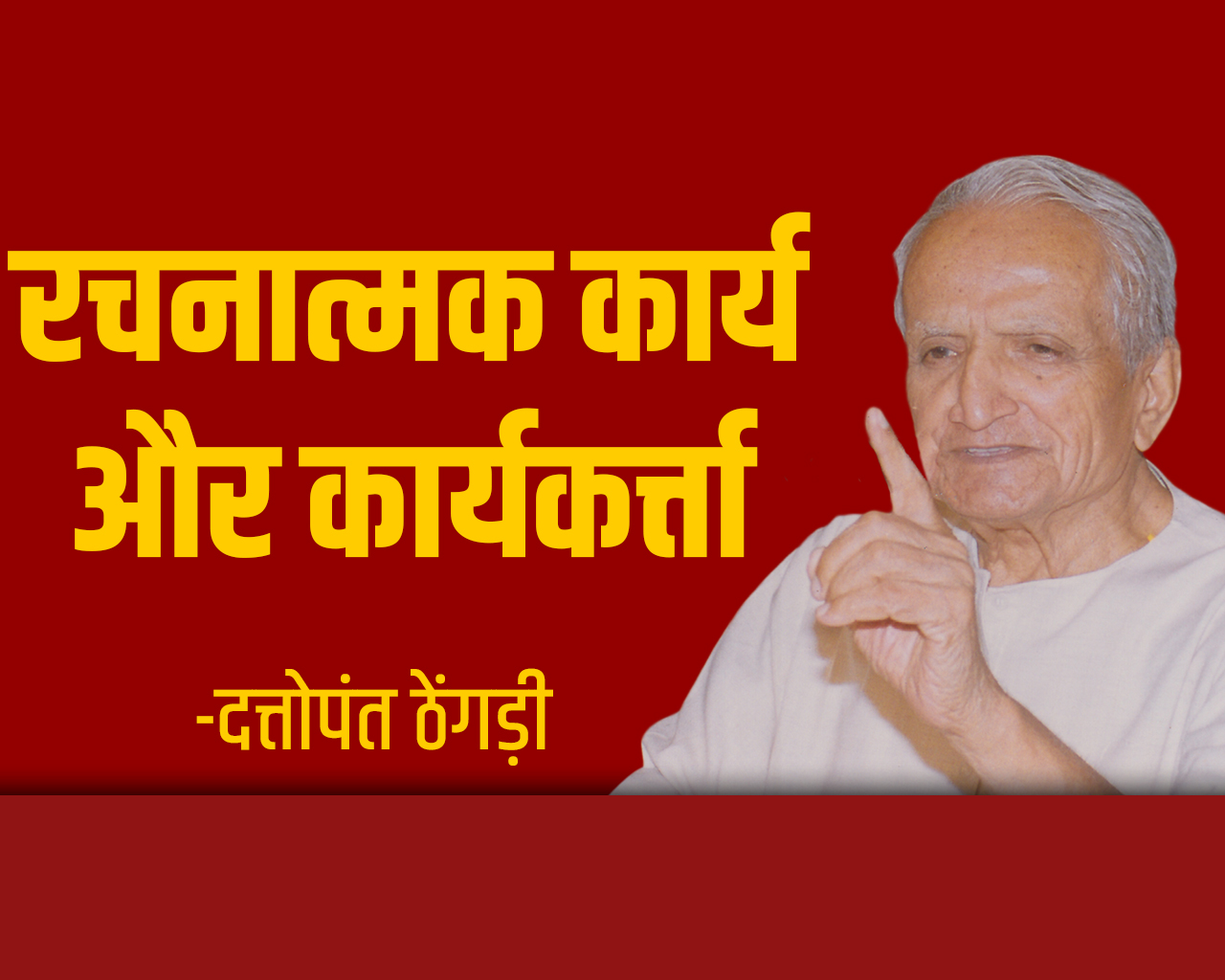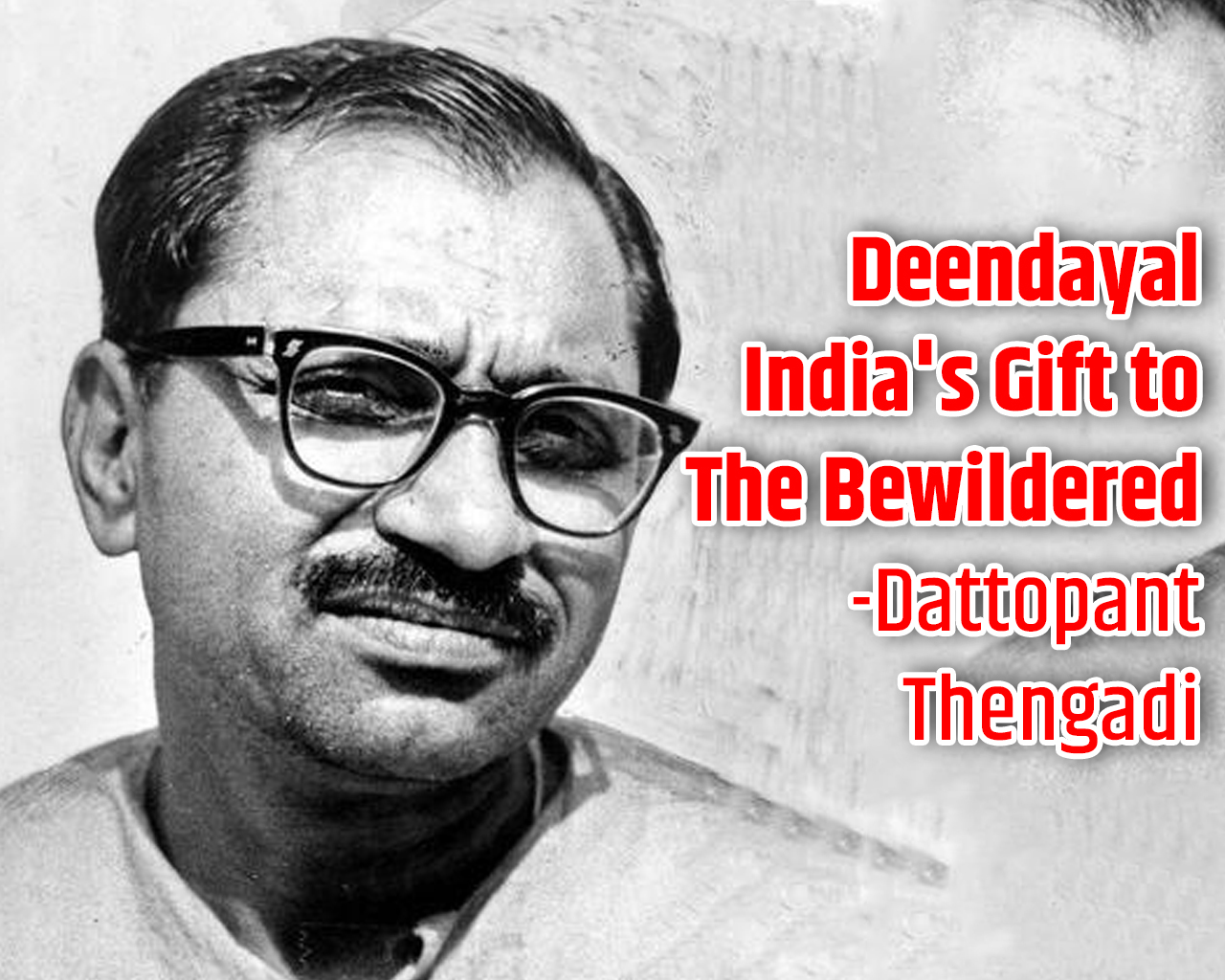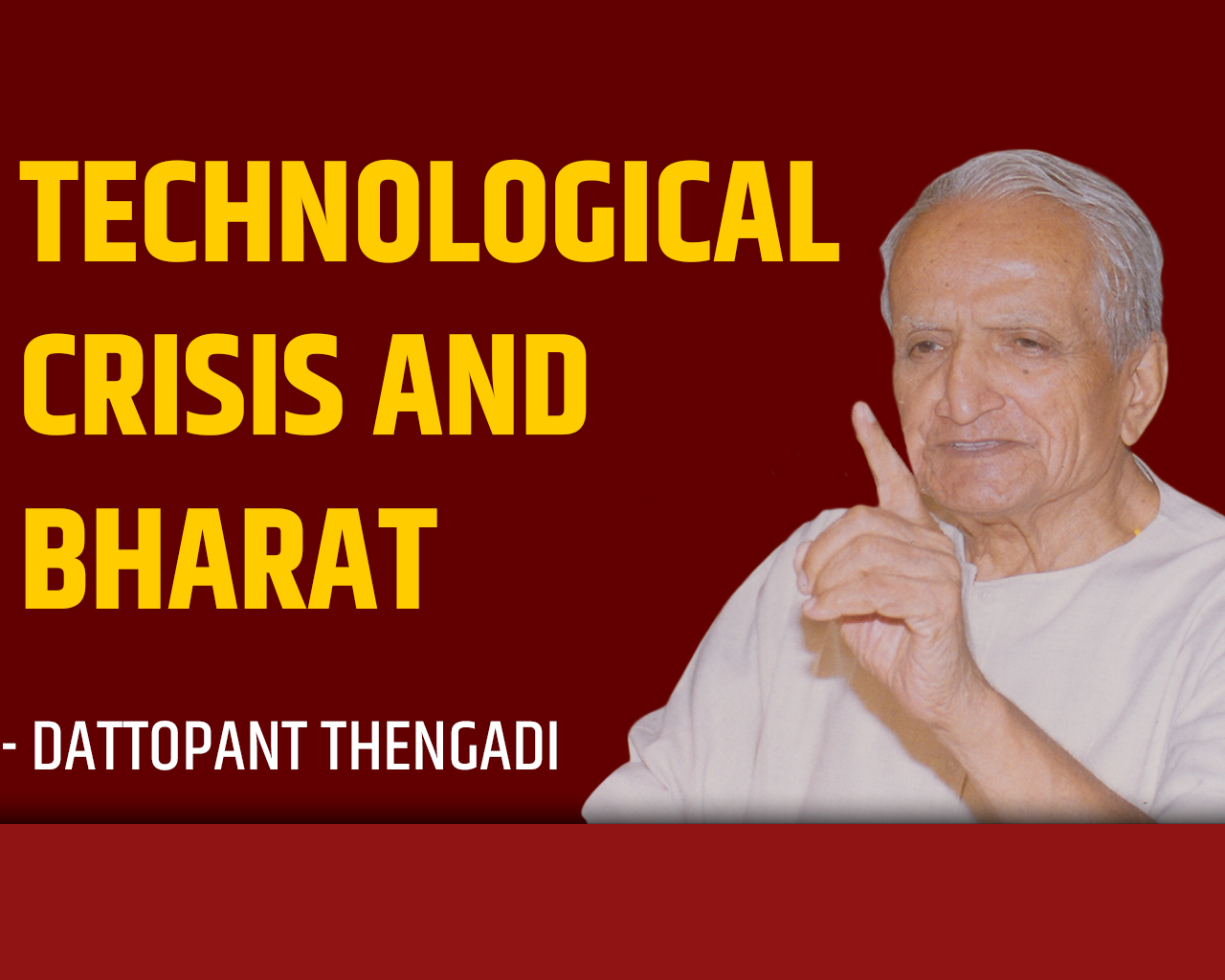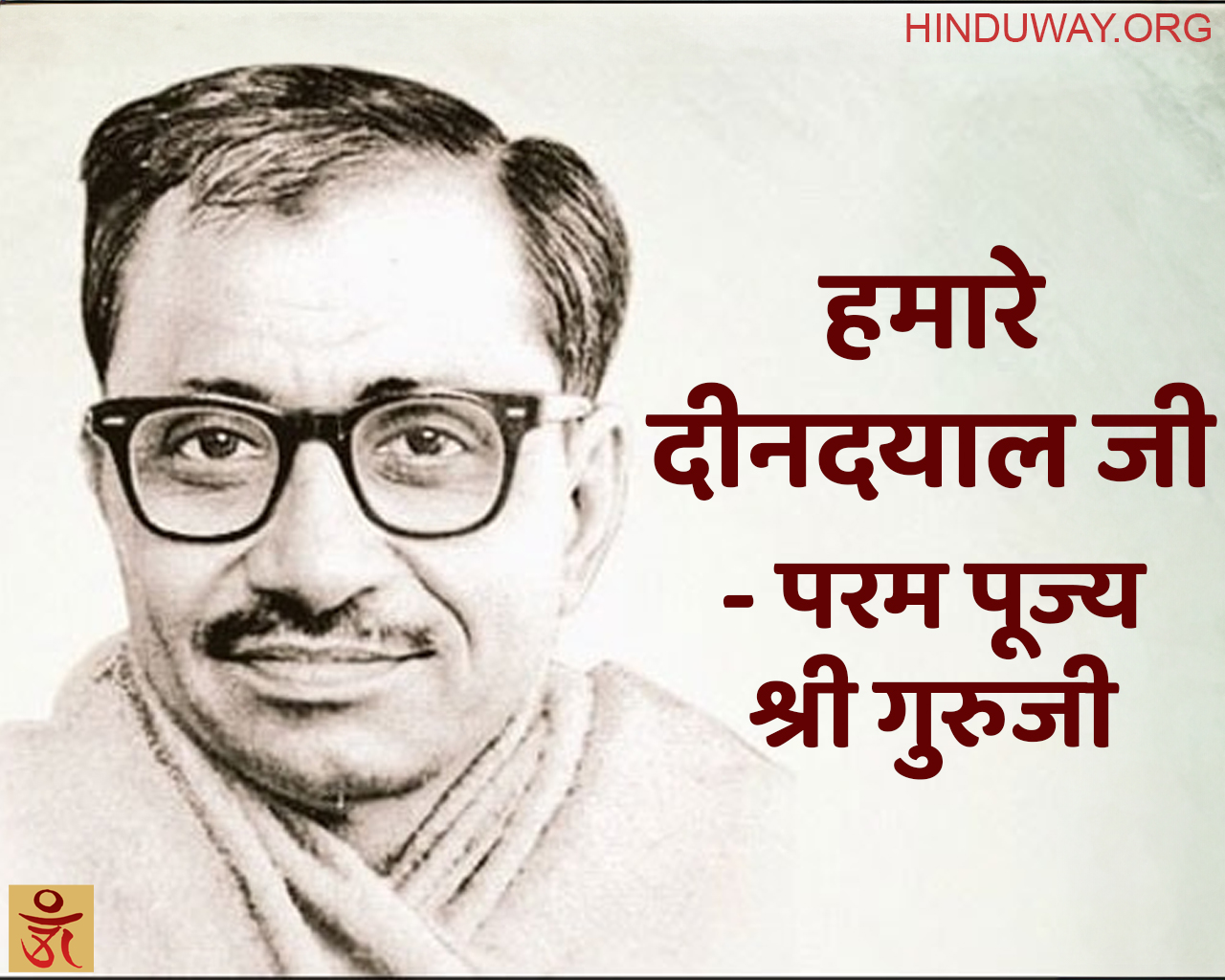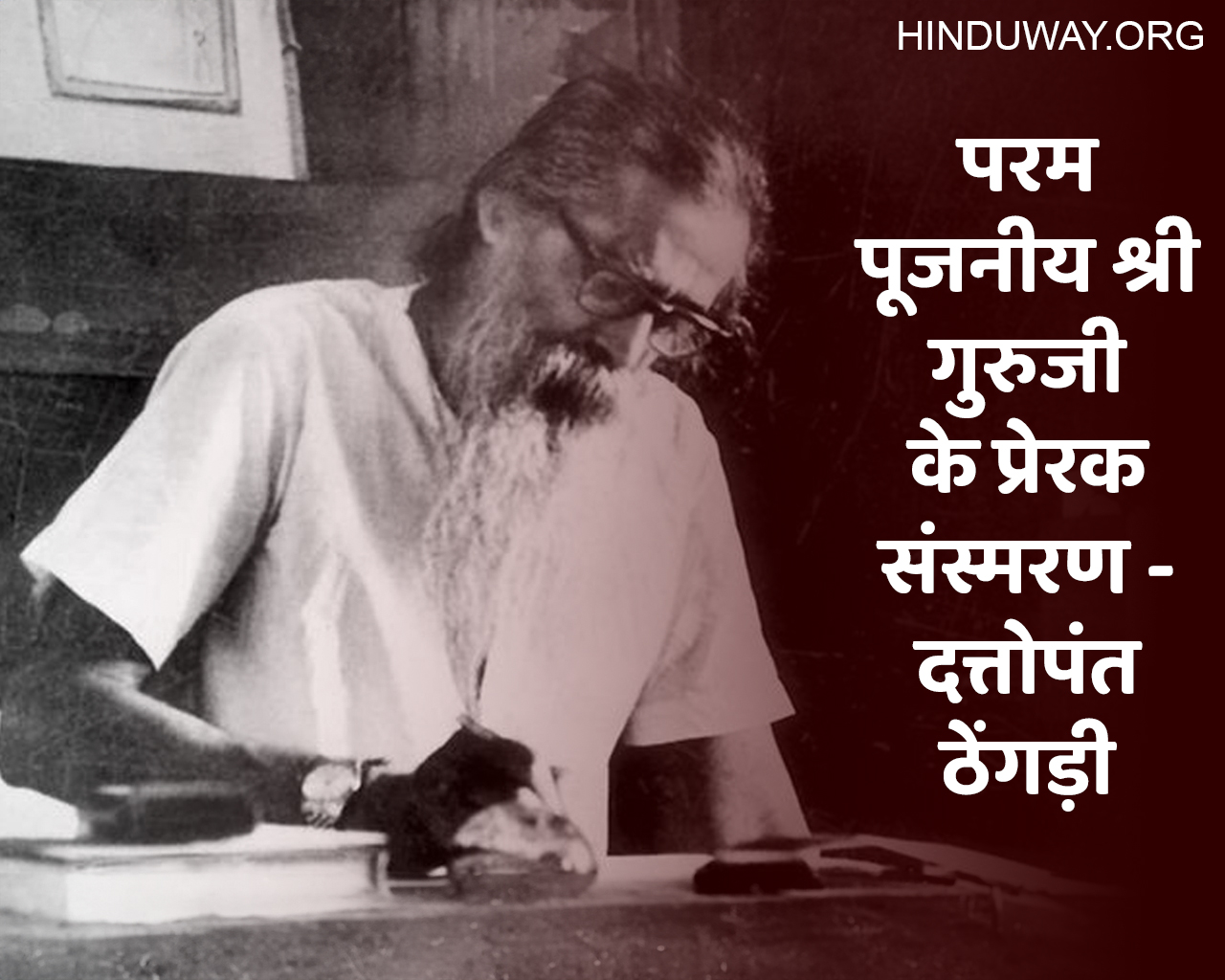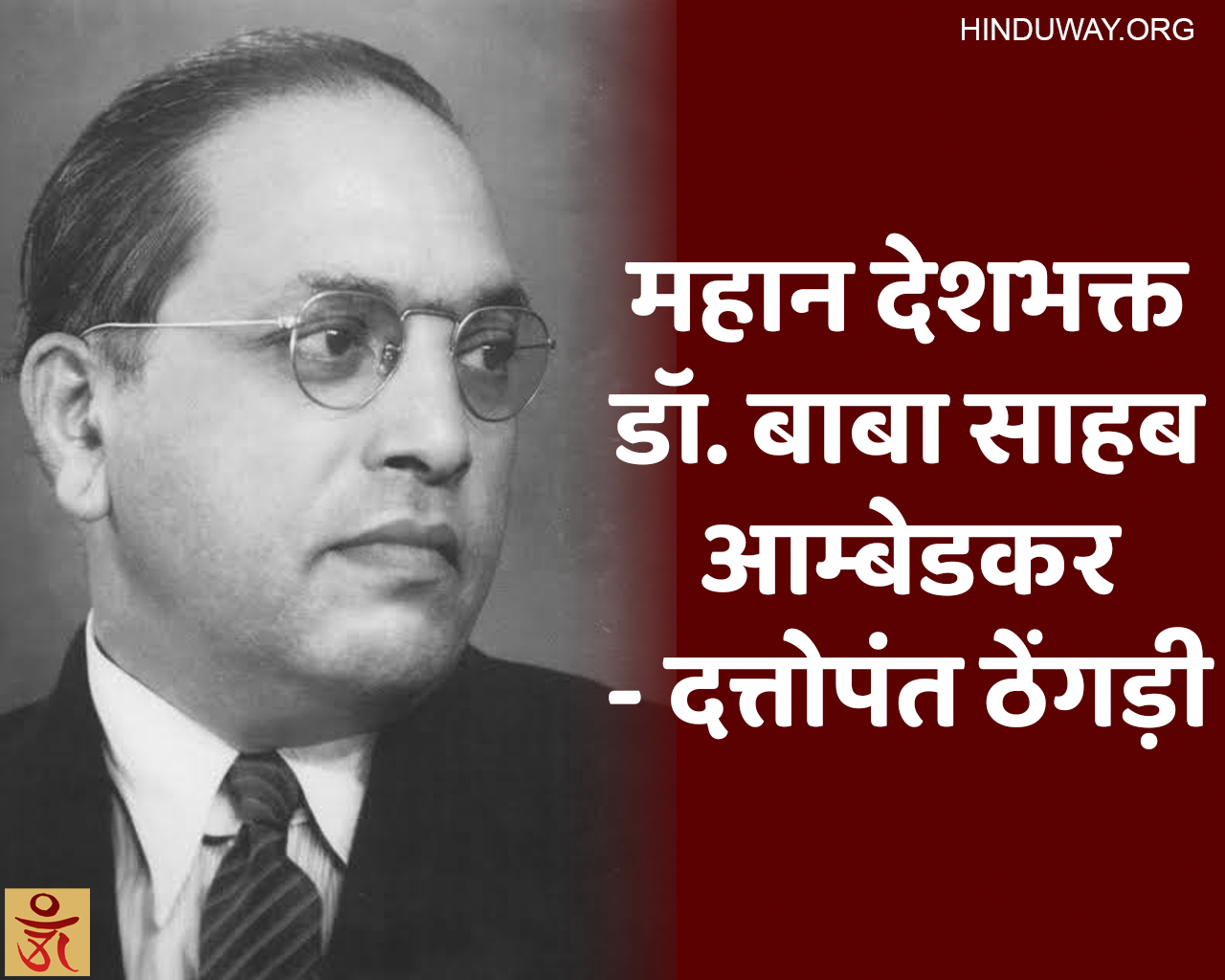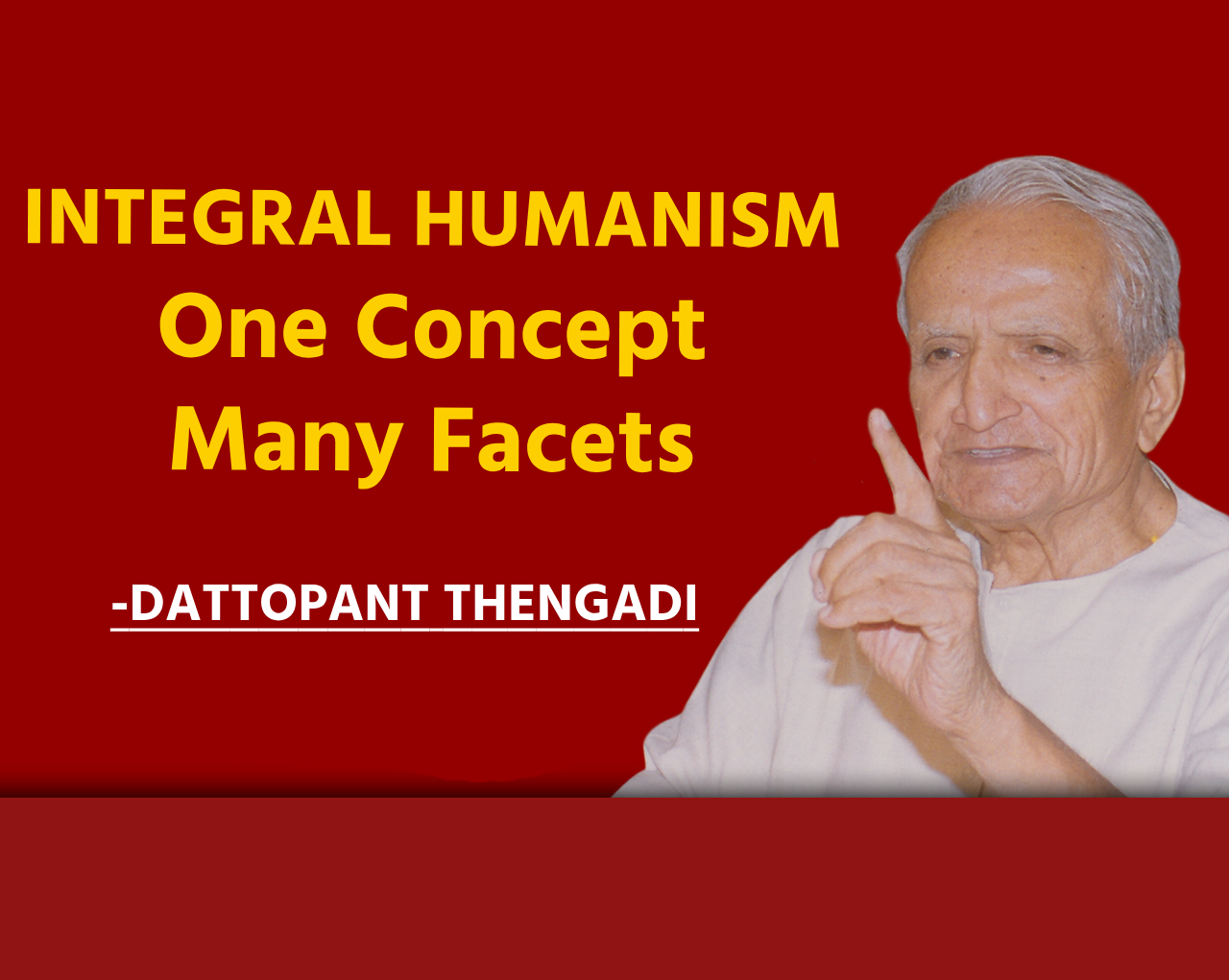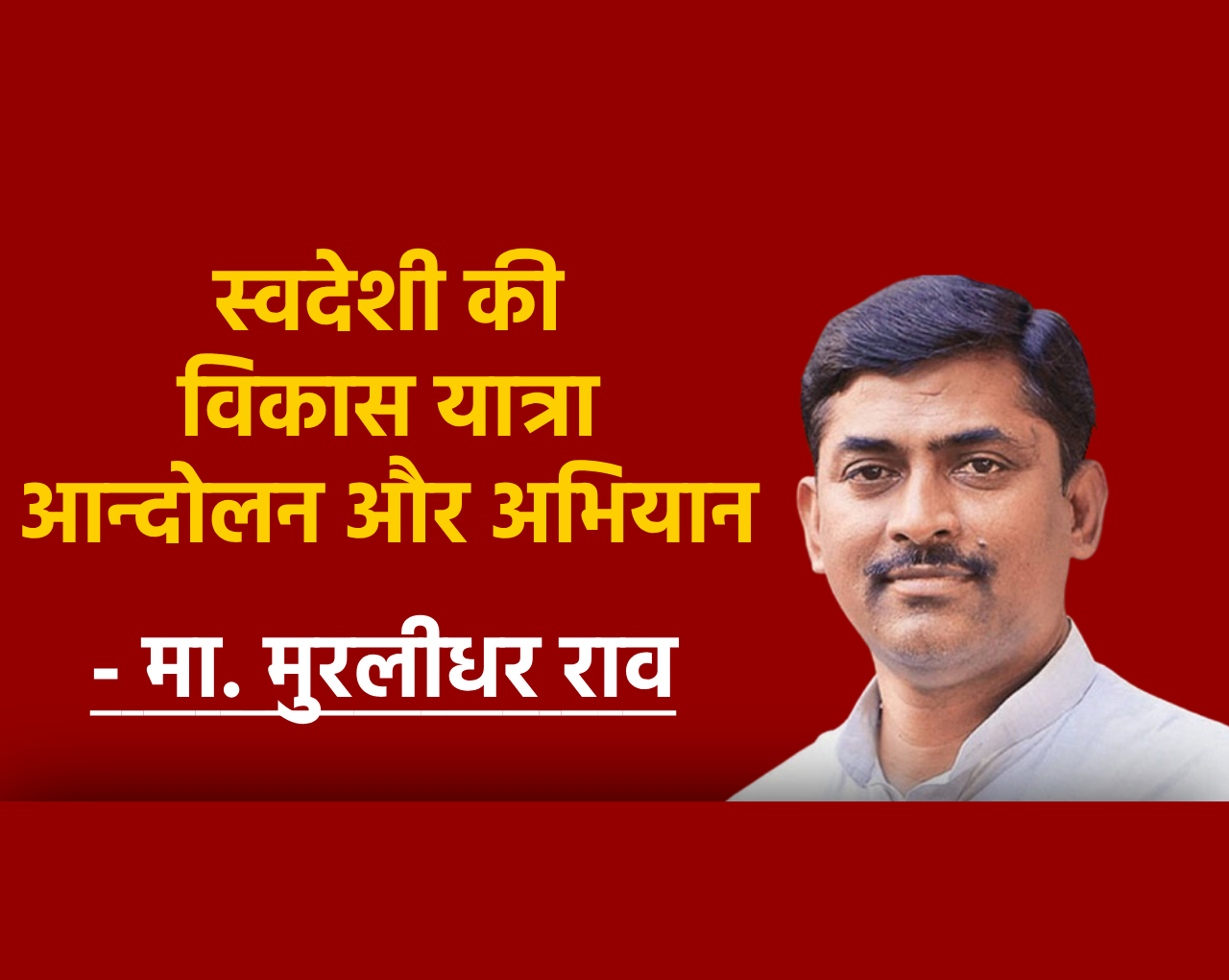Gopinathan Nayar Ji, All India chairman Gandhi Smarak Nidhi …who as organizing committee chairman of the convention, delivered its inaugurating speech. Shri Kailash Nathan Pillai, working Chairman of the reception committee who spoke ahead of me, and other respected dignitaries, leaders, associate organizations, representatives, and co-workers who are on the dais, and the delegates who have come from different parts of the country to this place, this Bhargava Desha. This is a very peculiar, and a very original, and a very important place in the culture, history, traditions, values of India.
You know Swadeshi Jagaran Manch is the only platform where people feel shy of talking in English. Everywhere else it is a pride to speak in English. You spoke good English – that’s a matter of pride. But Swadeshi Jagaran Manch ka manch mein ye sankoch ata hai. Mein angrezi mein bol raha hun, maaf kijiye. Ye fark hai. Swadeshi Jagaran Manch aur dusra Sansthaye Jo hai usmein ye fark hai, ki hum angrezi mein bol rahe hai isliye humara jo thoughts hai wo theek se communicate ho, isliye hum angrezi mein bol rahe hai. Bohot sare manch pe angrezi mein bolna a matter of pride hai. Isliye, Gopinathan Nayar Ji ne jo kaha, uska tooti footi hindi mein wo baat karte the, bhashan dete the desh Bhar, pandrah bees saal pehle. Abhi to uska continuity nahi hai isliye angrezi mein wo bole the. Hum teeno speakers angrezi mein hi bhashan denge. Baad mein apko hindi mein pravah ayega jab Arun Hojra Ji idhar Bhashan denge.
Swadeshi Jagaran Manch was formed in 1991. We have a 20 year history now. 20 year point is a high vantage point from which, we can look at what happened in the last 20 years. Well the Swadeshi Jagaran Manch was founded under the leadership of Dattopant Thengadi Ji. There was chaos in, not only in India, but in the whole world. The whole world was divided between two poles – the Market capitalist economic model, and the socialist economic model. These two were the opposing poles. Suddenly one pole disappeared, and there was wholesale defection to the market capitalist model, as if there was no other way. The world helplessly adopted the market capitalist model. And there was no protest in India on rational grounds. There was protest, but there was no protest on why the market capitalist model is not suitable for India and maybe even for the world, because the communist protest had virtually, ideologically died down. Because the communist party, communist countries, communist thinkers, communist economies themselves defected to run that side. In fact, China defected 10 years earlier. Russia defected in 1989-90; China defected in 1978. So the whole world was looking to the west , as the best ,so that the external world will have to follow the west. This was the ….. …….one way, in which the Swadeshi Jagaran Manch stood up to say that this single dimensional approach is harmful to India. This is one-sixth of humanity; it is not a small country. It is not a country like Singapore, which you can cycle across in 5 hours. It is not a Hong Kong, which you can motor across in 1 hour. It is 3 times the size of Europe, 4 times the size of America, 15 times the size of Japan. So for this country no country is a model. We need to generate our own thinking, our own intellect, our own economics, our own politics as Gopinathan Nayar Ji said. We need to develop our own intellectualism. This was the profound thought, the message, that camapaign, which the Swadeshi Jagaran Manch undertook at that time. Now we have 20 years of history, in which we can re-capture what happened in this 20 year period. We were told in 1991-92, that this country cannot develop without foreign investment, and we need $ 4400 billion for our infrastructure. We don’t have that money, so we need foreigners. We need foreign money, we need foreign technology, we need foreign missionary, and we need foreign models. We need foreign methods. So this was the campaign. When we undertook a counter-campaign, we were called anti-nationals. In fact when I was addressing a large meeting of highly educated people – academics, economists, professors, businessmen, executives in Administrative Staff College of India, in Hyderabad. Large gathering of about thousand people, and I was putting the contour point that the current assumption, the current model, the current thought, the current argument, the current policies, which points to India’s remedy being in foreign investment, foreign trade is wrong. India has its own great potential which I will deal with in another 5 minutes. At that time, I was talking about the potential of India as we saw it. Today we are going talk about the potential of India as we have experienced. There’s a difference. When I was talking at that time, one professor stood up and said people like you must be shot dead, because you are taking the country five hundred years back. This was the kind of objection, resistance, criticism the Swadeshi Jagaran Manch faced. Now we have 20 years of experience. And take the first example, that foreign investment alone can develop India. We have 20 years’ statistics to it, from 1991 to 2011. And we were told, in 1991-92- 93, when we used to have discussions with economists, professors, policy-makers – – they used to tell us that India can generate savings only for investment upto 24% of our GDP. GDP means the total income of the country. Individually we can generate only 24% as our investment on savings. And, there is a rule of Economics which says that if you invest 4 rupees, your GDP will grow by 1 rupee. This is capital output ratio. So if you invest 24%, you can grow only at 6%. You have to raise the investment to 32%, then only you can grow 8%. We cannot increase our investment to 32% because we have no money, and so we need this 8% investment from outside India. This was the justification given by all the great thinkers, Economic thinkers, policy-makers, media, and see what happened. In the last 20 years if you take the statistics about the total investment made in India, 98.8% of the investment in India has been made by Indian savings, through Indian savings. Only 1.2% has come from outside. The Indian savings rate went up, then the Indian economy began to grow. So our own savings were adequate. Our savings went up from 23% of the GDP in 1992-93 to 37% of the GDP in 2009. Our investment went up from 24% to almost 40%. That is why we could reach a growth rate of almost 10%. Many Indian thinkers, economists, media have not been able to understand the meaning of it. The foreigners understood the meaning of it. India is the only country which grew so much without substantial foreign investment. This is something new to the world. Korea could not do it, Taiwan could not do it, Malaysia could not do it, Indonesia could not do it, even China could not do it. Only India could pose such a big grow without or with very little foreign investment. And the world was shaken by this new model. And Shankaracharya, who was the advisor to the government of India in 2007-2008, he wrote an article in 2009 that this is something surprising that India has developed with very little foreign investment. And this is what we said in 1991-92 – that India cannot be developed by foreign investment, because this country is so huge, and there is no country which can make tenth of investment in India, because if you look at America, America…… It borrows money from the rest of the world. And…. England is borrowing. Every country in the western country except Germany, Italy, partly France. All other countries are borrowing and living. And how can it borrow and invest into our economy? So, the basic theory that by foreign investment only India can grow has been completely demolished in the last 20 years, and Swadeshi Jagaran Manch was the only think tank in India which could say that Indian potential to save and invest is so high, we don’t need any investment from outside India. And this is not something which the Swadeshi Jagaran Manch is saying today. In the year 2010, October, the Goldman Sachs, which is the biggest investment bank in the world, they came out with their report. And, the title of the report is ‘the Global economic paper no. 187’. It was dated October, 2010. In that paper, Goldman Sachs said that we thought the Indian infrastructure requirement would be 400 billion $, then we thought it would be 900 billion $, then we thought it would be 1.3 trillion $, now we think it will be 1.7 trillion $. Huge money required for developing infrastructure of India. And the Goldman Sachs said for this huge investment, India does not even need one dollar from outside, all the money that is required for India’s investment will be supplied by the Indian families. This is the most important …. I will come to later, Gopinathan Nayar mentioned that the culture of India, the traditions of India, the value systems of India have to be preserved. These are not good things, these are necessary things for development. These are not valuable things to be praised; these are necessary things for the life and economy of India. These what I’m going to say. So India has established one great point, in which Goldman Sachs, I don’t want to go deep into the paper, what they said is, that the Indian families will be able to save so much, that Savings to GDP ratio in India will be increased now, 30 to 33% to more than 40% of the GDP by 2016 and remain like this till 2026. The annual savings of Indian families will be 800 billion $, which is equal to all the bank advances to it. That is the extent of savings Goldman Sachs had predicted. This shut the mouth of the people who said India could be developed only with foreign investment. The Swadeshi Jagaran Manch could visualize this, envision this, project this as the model for development- how. Why the Indian Economic thinkers, policy-makers, the media, the intellectuals thought in one way and the Swadeshi Jagaran Manch thought different, I’m going to tell you in 5 minutes. Our whole mindset has been generated in India for the 150 years. There are sources for this wrong mindset. You know kerala is a land which recovered the Karl-Marx ideology. I don’t know whether you agree with it or not, they recommended the Karl-Marx ideology. Karl Marx wrote the Das Capital book in 1857, but four years before that he wrote 2 articles on India. In New York Herald Tribune, which is now called the International Herald Tribune, he wrote two articles on India. In the articles he wrote, that India is a very peculiar country, it has some kind of a semi- government which looks after the water-ways, it looks after the rivers, it looks after the roadways, it looks after the transfer of people from one into the other, it looks after the government order. But, the economy of India is not national economy, it is based on villages. Every village is self-sufficient. It doesn’t need anything from any other village. He said it’s a very peculiar system, and this has remained unchecked for 2000 years. Not one or two years, not one or two hundred years, for 2000 years. And so in the economy in village-ways, there was no economic exploitation. There could be other exploitation, because human beings are always Engineers in finding ways of exploiting others. By status, by colour, by education, by intellect – you can exploit others by many means. Economic exploitation was not there, because the economic power was so de-centralized, as Gopinathan Ji Nayar said – Centralization leads to domination and exploitation. So we avoided centralization, and though Karl Marx praised this, but he said that the problem with India is, they are worshipping monkeys, they are worshipping cows, and so they are semi-barbaric. See their assessment. It is not lack of economic disparity which mattered, nothing mattered; the disqualification was that you are worshipping monkeys and cows. He never came to India. He never met any Indian. He never read any Indian ancient literature. He only studied the colonial dispatches from India. On that basis he judged India as a country of monkey worshippers and cow worshippers, and so semi-barbaric. Any other country would have ignored that thinker. But in India he became one of the most influential thinkers. And he dominated, his thought, dominated the academia, intellectuals, political parties, universities, public discourse. For the last 100 years, Karl Marx’s domination of the Indian intellect, the India mind was very high. Another person was one Max Weber. Max Weber is supposed to be… he is supposed to be the father of modern west. Now, my predecessors speak at spoke about families. Max Weber’s sociology which is formed upon what is known as methodological individualism says men is superior to family. Men need not respect his parents, need not respect the teachers, need not respect the elders. Man is supreme. This is called methodological individualism. This is the foundation of the modern west. This is the foundation of modern western capitalism. Capitalism is not just a matter of market, it is a matter of man’s attitude. There is nothing venerable in western civilization. No respect or reverence for parents, for teachers, for elders, for god, for nature; only individuals. People like Karl Popper defined it even worse. I am not getting into a sociology class. Simple point we have to make is, Max Webber studied the Christian societies – the protestant Christian society and the Catholic Christian society, and said look at the protestant Christian societies which have promoted individualism. And because of individualism, they have been able to generate entrepreneurship, enterprise, and because of that Capitalism has grown. See the catholic societies; they have not been able to do it. It is true. On a study of the Economic development of Catholic societies and protestant societies, the protestant societies have gone up in economic development, and catholic societies have come down or stagnated. He was right. There was nothing wrong because he studied America, he studied Germany, he studied France, he studied England, he studied Spain. He was right, because he had made a study. But after 20 years of his study, in 1897, he came with his study. After 20 years he came out with that book, ‘The Religion of Hinduism and Buddhism’. In that book he wrote all societies can come up, two societies can never come up in economic development – The Hindu society and Buddhist society because they believe in Karma and re-birth. If you believe in Karma and re-birth, you’ll have no individual freedom, you’ll have no individual enterprise. You believe in faith. And so these two societies can never come up. The man who never came to India, he never met any Indian, he never spoke to any Indian thinker, intellectual, spiritualist, but he concluded about the Indian civilization, Indian Ethos , Indian culture, Indian religion, Indian people. And you know there are scientific studies which shows that these two thinkers influenced the Indian academia, universities, textbooks, public discourse, policy-makers. These two were the greatest influence on India, and they continually influenced the India thinkers. This is what Indians feel, we can’t do anything. We are incapable of doing anything. And this was followed by people like Churchill. People in India quote Churchill because of his English. The man called them semi-barbaric. In 1931, he said Indians are semi-barbaric. This is how the westerners made the English educated Indians to feel. They have no right. This is weighing on all our thinkers, policy-makers, economists, leaders, public writers, that we can’t do anything. And this is not something which was confined to India. In the year 1951, the United Nations adopted a policy statement – ‘how underdeveloped nations can develop’. They told the underdeveloped nations you cannot develop unless you give up your culture, your way of life, and…. This is United Nations’ department of social and economic affairs. …… for economic development of underdeveloped countries, 1951. Immediately after the World War was over, when the western world was formulating the development plan for the entire world including the underdeveloped nations, this policy statement is given. There is a sense in which rapid economic progress is impossible, without painful adjustments. That is, unless you undertake painful adjustments, you cannot make rapid economic progress. What is that painful adjustment? Asian philosophies have to be scraped. Asian philosophy means you have to forget Shankara, you have to dissolve Ramanuja, you have to decline Mathua , you have to make Gandhi irrelevant. Asian philosophies have to be scraped. Old social institutions have to disintegrate, including the family. I’ll come to it later. Bonds of caste, creed and race have to burst. And large no. of those, who cannot keep up with the progress of this kind have to have their expectations of a comfortable life, frustrated. You can never have a comfortable life unless you give up your traditions, you values, your culture, your whole past. You know this is called the anthropological modernity of the west. So market economy is not economics, it has nothing to do just with finance. It calls for a total change in the personality of not only the man, but the society, the nation. So this is the pressure on the Indian thinkers, the Indian intellectuals, that unless you cease to be Indian in every sense of the term, you can never develop. This is the English educated intellectualism of India in the field of sociology, in the field of culture, in the field of anthropology, in the field of history, in the field of economics. This is what the Swadeshi Jagaran Manch is resisting. It is not merely an issue – buy a toothpaste produced by Colgate or it should be some toothpaste produced by some local manufacturer. The issue is not so simple. The issue was a much bigger issue; whether you can develop with your lifestyle, with your culture, with your whole approach to life intact or you have to discard all this, and then only progress. This is what the west had told them. This they told us in 1951. When globalization took over, it was a tsunami. Nobody could speak against it, nobody could resist it. It is at that time the Swadeshi Jagaran Manch, ideologically resisted this. And today this proved to be correct. I’m going to tell you, in the next 5 minutes, as to how this entire discourse was continued in the post-independence period. I will relate an experience in the IIT Bombay in 2010, December. I had been called to deliver a lecture in IIT Bombay in 2010, by the management institute of IIT Bombay. Ahead of me spoke a great industrialist, by name Adi Godrej. He said that India never knew what was prosperity. We knew about god, but we did not know about Economics. And so because of that there was hunger, poverty, there was illiteracy. There was deprivation in this country. Only because of globalization India grew and we only know prosperity now. Before that we never knew prosperity. The entire IIT, after he completed the speech – the professors, the research scholars, the students, the faculty, the observers, they all stood up and clapped. I was to speak next. You know, after usually praising the previous speaker, I said ‘I have to differ from my previous speaker, not because I want to differ. Because I have to differ. Because the facts which he is not aware, I’m going to tell you. Then I began speaking. I said that what Mr. Godrej spoke was true 13 years back, not now. In the year 1978, and he also, Adi Godrej quoted the term ‘Hindu growth rate’. He was asked in 19.. One Prof. Raj Krishna was asked in 1978. He was an economist. He advised the government of India. He was a socialist thinker. So he was asked – ‘Mr. Raj Krishna, we are following the same socialist policy Russia is following, Poland is following, Hungary is following, Yugoslavia is following, but they are all growing faster. The same policies we are following, you are an advisor to the government of India, but why isn’t it that we not following so fast, growing so fast? To which I don’t know why, whether he said in…or he wanted to escape that question, he said –‘ Kya karenge, ye to Hindu rate of growth hai.’ The problem was not with socialism, the problem was with the Hindus. This was the very profane, un-thought, un-researched, remark which professor Raj Krishna made. You know Robert Maclomoron who was the President of the World Bank picked up this remark, and in at least 10-12 world conferences he said an Indian Economist has said India can never grow because of its Hindu culture. And so we have to give aid to India. Please! he went on begging before the whole world, because Indians cannot grow. That is how this Hindu rate of growth, that India cannot grow. Even 2 years back, the planning commission Vice-Chairman …. said the ‘Hindu rate of Growth’. This happened in 1978. In 1983 something stunning happens in the world. One Paul Biro, a Belgian economist came out with a study of the world economy between 1750 and 1900. 150 years – he researched in the world economy, and came out with figures, which stunned the world. He said if 1750 if you tabulate the economic growth of world, China was leading the world with 34% of the world GDP, India was next with 24.5% of world GDP. And America and England put together just 2% of the world GDP in 1750, and in 1900 the whole thing turns upside down. India and China together became 8%. China 6.2% from 34%, India 1.8% from 24.6. America and England put together, from 2% to 41%. The whole world turns upside-down. It shook the west. Historians like…. Began saying – If this is true, India and China had much better standard of living in the 17th and 18th centuries than the western countries. The West could not bear this, so they constituted a study, development studies institute under Angus madison, the greatest economic thinker ever produced. This was done by the OECD countries, the organization for economic coordination and development. 26 rich and powerful countries constituted this study, and said, Angus madison will study and find out whether what Paul Biro has said is correct or not. And in fact Angus Madison said, if what Paul Biro says is correct, west did not develop because of any scientific precocity or slow accumulation of wealth, or financial genius. If what Paul Byoc says is correct, west grew only because of colonial domination. But I don’t think it is correct. ……… He came out with his findings in 2001, not hundred and fifty years, 2000 years of economic history of the world, and that is called, ‘World Economic history: A Millennium perspective’. This book came out in 2001. In that book he said that in the first year of the Common Era, that year in which Jesus Christ is believed to have been born, 2000 years back, India was leading the world with 36% of world’s growth – 36%. China 28%. Most western countries were not in the picture, they were not in the score-board. In the year 1000, same thing continues – India first, China next. 1400 – India first, China next. 1500 – India and China equal. 1600- China overtakes India. 1700- India overtakes China. The game was only between these two countries. And Max Weber said these two countries can never grow in economic terms because they follow Hinduism and Buddhism. What a false theory. And we believed the theory. We taught the theory. We were convinced by the theory, and so we said we can never grow. When I mentioned this in the IIT, after a ……ofcourse I said many more things which I don’t want to share here, at the end of the meeting all the students, professors, everybody came to me and surrounded me. Sir this…can be demolished and thrown away if these high educational institutions are not going to teach such fundamental things. We don’t need these institutions. That speech is available in YouTube. It’s a one hour and 20 minute speech, at the end of which all the professors, lecturers came to me and asked me – Sir please don’t stop with this one speech. Please run a course for us every year. From that year onwards for 3 months I am running a course for them which again this year also I am beginning in February 24th. This is the knowledge of high educational institutions like IIT, educated professors, the media, intellectuals, the economists, the policy-makers. They don’t know. Swadeshi Jagaran Manch knew the potential in India. That is why it could say, that India is a winner. Why is it a winner, I’m going to say now. You know the world has been destroyed, the western world is destroyed. Many people look at the building, they look at the roads, they look at the aircrafts. America is having 2 lac aircrafts flying here and there. So everybody is shocked by the kind of external show, but look at America internally. The American families are destroyed. 55% of the first marriages end in a divorce. 67% of the second marriages end in divorce. If something had that tenacity to marry, 74% of the third marriage ends in divorce. 47% of the babies born are born from unwed mother. People who are not married have become mothers. 41% of the babies in America, 47% of the babies in England, 56% of the babies in Sweden, Norway, which is supposed to be very high on human development, this is the country towards which we should move in human development. And this is not cultural de-generation, economic de-generation also. You know why we save? Why India saves so much, why china saves so much, Why Korea saves so much, Why Aisa saves so much? The world total savings, Asian contribution is 75% -World! It is because we have a family system. Family means responsibility. Responsibility means saving. Responsibility means less spending. But in America there is no family today. So the care of elders, ill-formed people, unemployed people, which the family looks after here- You take care of your parents, you take care of your ill-formed people, you take care of unemployed children. This is not the case in America. There is no family to take care of them, and so these responsibilities have post-ponded to the government. So I say, in America families have been nationalized. And government is being privatized. Roads, bridges, water supply, municipal supply, these are all for thousands of years the responsibilities of kings and governors, they are being privatized. Taking care of parents, taking care of unemployed people, taking care of un-healthy people, ill-formed people, this for thousands of years has been the responsibility of the family – that has been nationalized. Because the family has no responsibility, family savings have crashed. From 80% of the total savings, the American families’ savings in 1960, in the year 2006, the families’ savings were -20%. That means, the families were spending more than what they were earning. To make that spending easy, they gave credit cards. You know 11 crore American families have 120 crore credit cards. And they have a debt of 150 lac crores on credit cards. Their car is in debt, their home is in debt, their groceries are bought on debt. …. American savings being nil, American government is borrowing outside for its day to day survival. The picture is the reverse in India. This the Swadeshi Jagaran Manch said, that family is at the core of India’s economy. And why the Indian families are able to save? It is because of the Indian women. And I quote what happened in 1993-94, when Dr. Manmohan Singh who is the Prime Minister today was the finance minister. He had brought one advisor by name Dr. Balodi, Jagdish Balodi. He was a great economist, and he was the one who formulated the WTO. And he was called the ‘God of free trade’. When he came to India, Dr. Manmohan Singh asked him – We are in a mess. Please tell us how can we come out of this mess? So the Dr. Jadish gave a 72 page paper in which 3 pages he dealt with about the Indian families, and particularly about the Indian women. He said that India’s biggest problem is the Indian families are saving more than what they should be doing. They are saving 19% of the GDP, and their saving should be brought down to 9-10%. And so the balance should become expenditure. Once the families begin spending, it will become sales, it will become production, …….. So the government of, and he also said, the Indian families will not spend unless the Indian women are taught how to spend. They are very very miserly, and so you must teach the Indian women how to spend. For that purpose you must bring them goods from abroad. Jewelry, crockery, all kinds of cosmetics and beauty items, and make the Indian women lose their responsibility and overcome by desire they must begin piling goods. Once you teach the Indian women how to spend, then nobody can stop the growth of India. The Indian government began doing this in a big way. And advertisements – the media was very happy. And I was ….. The media was also supporting all this. And there were songs in the television to sell the goods. The Indian women sang the songs but did not buy the goods. That is why our family savings went up from 19% of the GDP to 29% of the GDP. It is the families which are at the core of the Indian economy. And women are at the centre of the Indian economy. Actually the Indian economy has a feminine character. This is the finding of the Swadeshi Jagaran Manch. So in any government in India, whichever government comes to power,… to understand that India cannot be developed from outside. There is enough potential in strength, discipline, culture, character in India. Domestic production, domestic consumption, domestic savings, domestic capital formation, domestic market. This is what drives India. Any government in India, hopefully will realize this, including any government that is going to come to power. And the Swadeshi Jagaran Manch will continue to carry on this ideological campaign, and ensure that whatever government that comes to power, sees this truth. Thank you very much.
Transcribed by Pranav Raj Singh Bhati
| साभार संदर्भ |
| Mananiya Shri S. Gurumurthy`s keynote Speech on Inaugural Session of Swadeshi Jagaran Manch Rastriya sammelan, at Trivandrum on 13.12.2013 Shri Swaminathan Gurumurthy, a well-known commentator on Economics and politics and a leading corporate adviser in India. Mr. Gurumurthy is an acclaimed writer who has penned thought provoking articles in several dailies and periodicals across the country. He is well known for his radical views on raging issues. Many of his articles in the New Indian Express highlighted the disadvantages of globalization espousing the cause of the Swadeshi Movement and a united India. Along with his team of professionals and academics, Mr. Gurumurthy has studied over 42 community driven industrial clusters in different parts of the country. A chartered accountant by training, his outstanding knowledge of economics and accounting, unconventional economic thinking and his powerful personality have had an immense influence over corporate India. After completing his C.A. in 1972 he joined an auditing firm and was alloted the job of maintaining the books of some of the companies owned by the Ramnath Goyenka. In 1976 Mr. Gurumurthy started his own firm – Guru and Vardhan. Mr. Gurumurthy has to his credit solved many corporate family issues and also brought about an amicable solution to one of the biggest corporate issues between Grassim and L&T. He was rated among the 50 most powerful persons in India in 1990 by the gentleman Magazine, as the 8th most powerful person by the Business Standard Magazine in 2004, and as the 17th most powerful person by India today magazine in 2005. It is noteworthy that his influence rest on the status he enjoined as a person, and as a writer of integrity and courage. Rather than power from any formal position he occupied in the government or any organization. |

